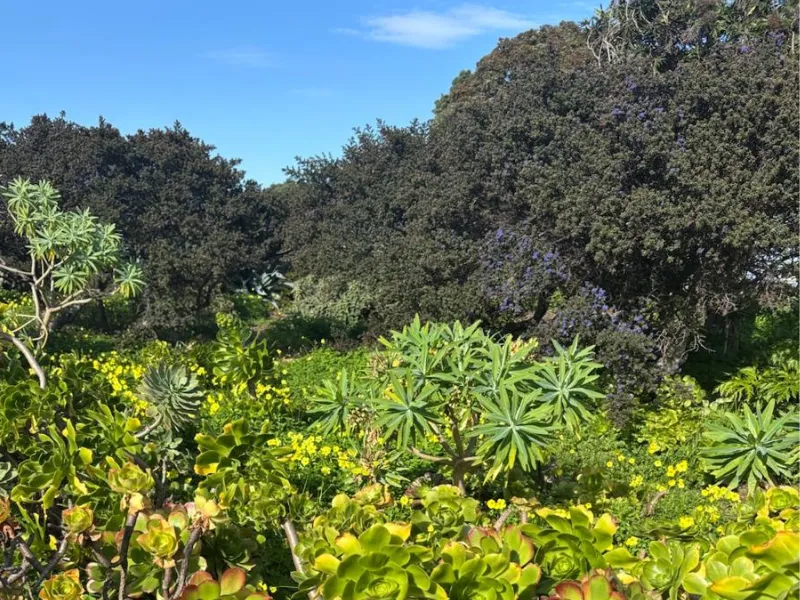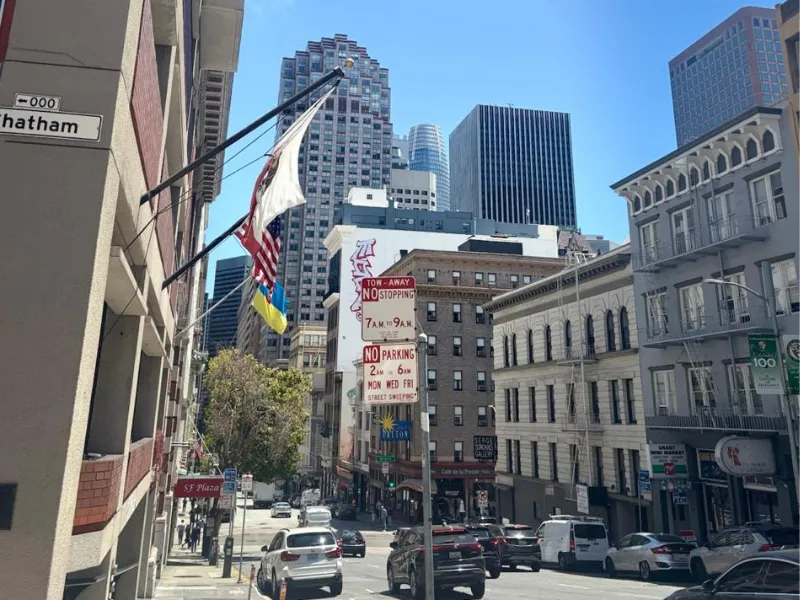How Living in San Francisco Made Me More Present
The city is fast, and you’re always answering the question: What do you do? Strangely, that chaos pulled me inward instead of overwhelming me.
Most of us treat “being present and inward” as slowing down or unplugging. But for me, it’s been the opposite. Being observant—with attention—is an accelerant. It helps you make better decisions, work with more focus, and direct your energy wisely.
So how did I stay present when the pace is so high?
1. Cultural contrast makes you a better listener
I was suddenly surrounded by people with wildly different backgrounds and cultures—but surprisingly similar hopes and fears. It broke my habit of reading people quickly and made me genuinely curious to understand them.
There’s a small café next to my apartment run by a Vietnamese couple. When I first moved, I used to eat breakfast there often. They’d share stories with me, and I assumed they were just being polite because I was a regular. But even six months after I stopped going, they still wave at me with the same energy every time I walk by. One evening, I went for dinner at a friend’s place and ended up at a table with people from five different culture—American, Mexican, Spanish, French, and me. Before eating, we each said “bon appétit” in our own languages and shared a bit about the food traditions we grew up with. It wasn’t planned or performative—it just happened naturally.
That small moment reminded me how little I know about other ways of being, and how much there is to observe when you stop trying to read the room quickly and just listen instead.
2. Nature resets your mind without asking for it
California is raw, beautiful, and surprising in a very unforced way. You never run out of forests, beaches, hikes—or these strange moments where nature and city life just coexist.
When you see that much unfiltered beauty, often and up close, it does something. It makes you wonder if the point of being here is less about chasing something grand—and more about simply experiencing what’s already real and alive. It’s a strange, grounding contrast in a city that constantly tells you to think bigger.
That tension—the quiet pull to just be, and the external push to become—isn’t a conflict to solve. It’s what expands you.

3. A lower-friction life creates more space in your head
One thing I noticed early on is that I don’t spend much time planning logistics anymore. I walk almost everywhere. I take Caltrain to meet people—it runs on time. I mostly cook food that’s simple and takes under 15 minutes. I don’t think much about what to wear or how to “show up.”
These things sound minor, but they quietly free up mental energy. When daily life stops eating away at your attention, that space gets reallocated—usually to more meaningful problems. It’s not that life became easier, it’s that I stopped wasting energy on the basics.

4. Seeing how people handle failure changed how I relate to it
Not long after I arrived, I met a founder who had just shut down his startup. He wasn’t defensive, upset, or overly rationalizing. He was calm and honest. An year later, he was building again—with more conviction, strong Product-Market Fit and a great product.
The culture I come from tends to turn failure into a permanent label. But watching how quickly and gracefully people here move forward made me realize how much weight I was still assigning to things going “wrong.” Most failure is just process. And when you treat it like that, you start acting faster, with less mental baggage.
5. Focus cuts through the noise
Here, you can’t afford (literally) to lie to yourself for too long. The cost of wasted time is high, and everything around you is moving fast. The market shifts weekly. Yesterday’s wins don’t buy tomorrow’s relevance.
That pressure, strangely, brought clarity.I realized that staying relevant doesn’t come from being loud—it comes from being accurate. And accuracy requires attention.
6. Being around people who are driven by joy made me reflect on my own motives
I’ve met people here solving oddly specific problems—not because they’re fundable or big, but because they enjoy it. One person is building a successful AI writing app for Novelists, another building a games on the weekend while running a manufacturing startup on weekdays, another running a community to promote climate education.
Being around them made me question my own motives. The more I shifted back to doing things for myself, the more energy I found for the hard parts.

7. The pressure to signal status feels low—and that gives you room to quietly improve
There’s ambition here, no doubt. But it’s usually directed inward. Once I stepped away from X and spent more time offline, I saw a different pattern. People care more about why they are doing what they do, how healthy they are, how thoughtful they’re being with their time. That shifted things for me, I noticed myself focusing more on doing things well, even if no one saw it.
Closing thoughts
This might read like I’m romanticizing the city. But it’s not about San Francisco being magical. These are small defaults—natural, often unspoken—that rewired how I think and work. And there’s science behind why they do. Your brain responds to novelty, low friction, beauty, and authentic connection in very specific ways.
So next time someone says something you don’t understand, try not to jump into judgment. Just observe. When you see blooming trees, don’t scroll past—pause for a second. Admire the person building something weird and joyful, not for how big it might become, but for how much they care.
That shift in attention—if you stick with it—changes more than you think.